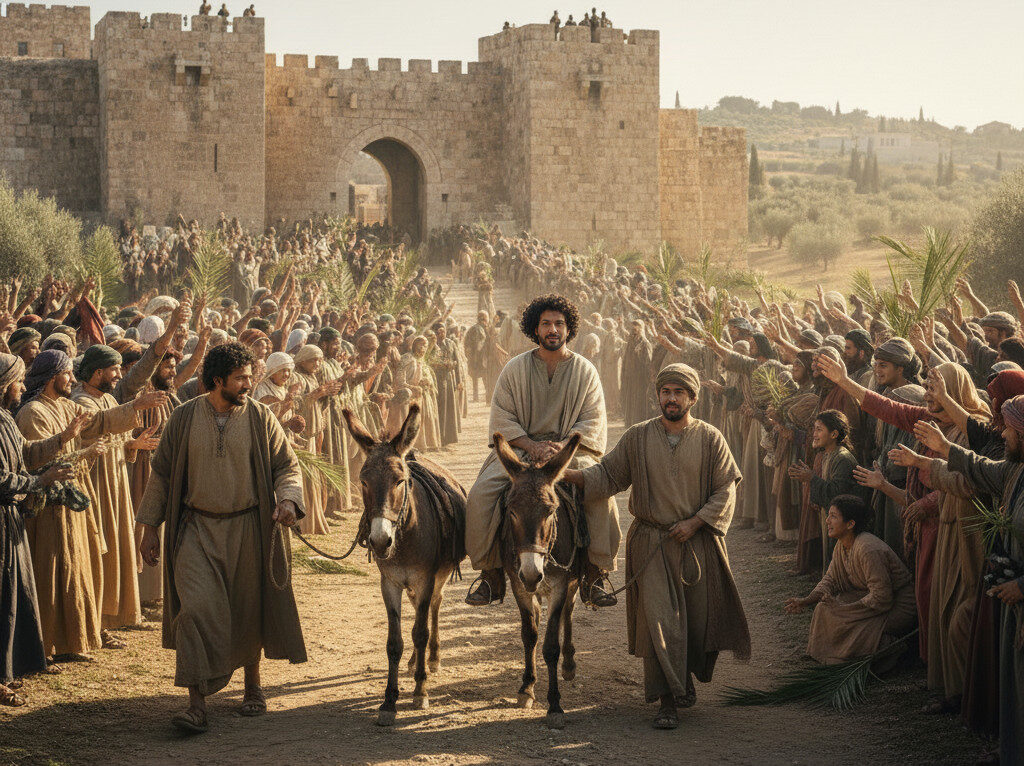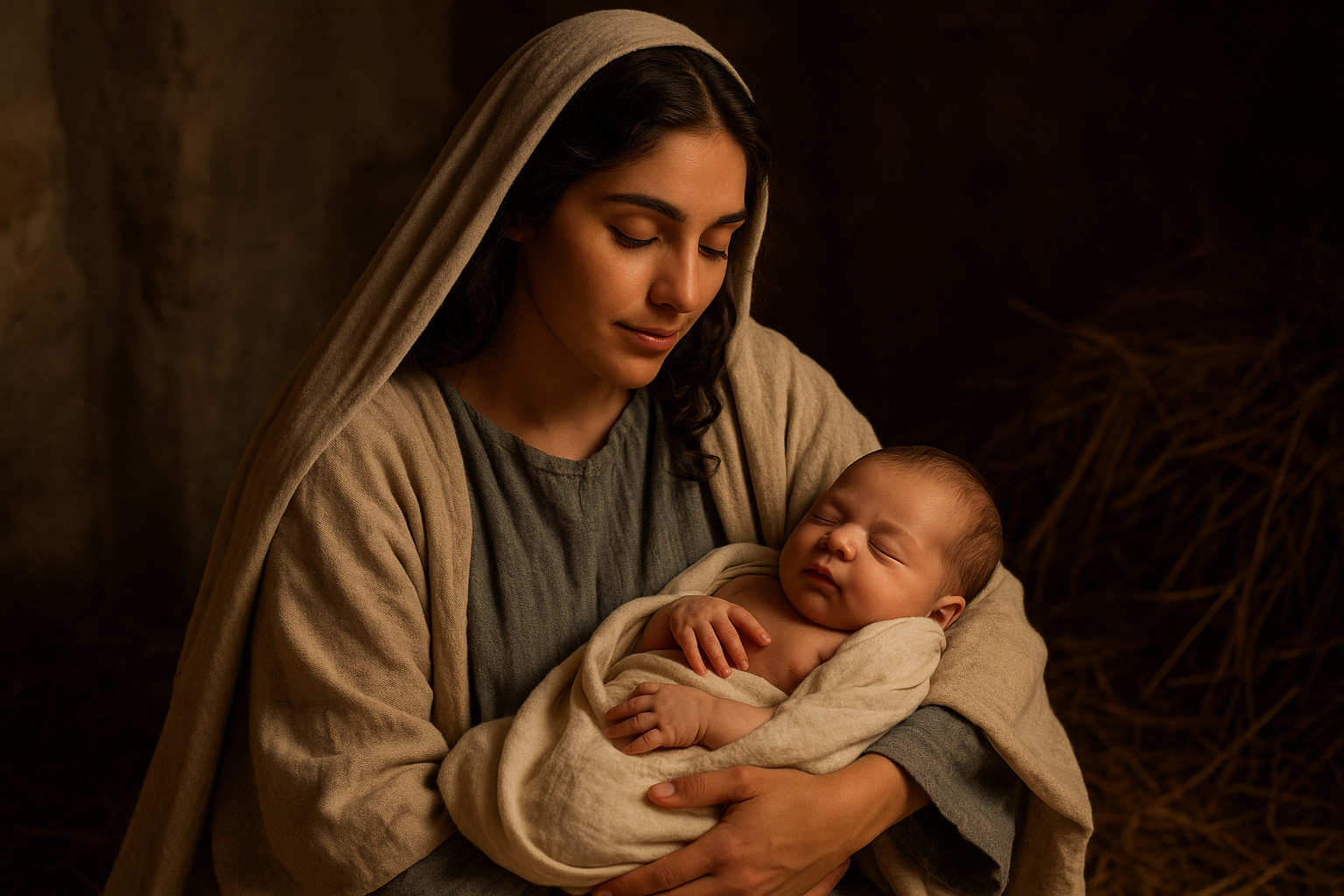Ezekiel 37:15-28 and Elements of God’s Future Promises to Israel
By Dr. Keith Kobelia / January 30, 2026
The Prophet Ezekiel was called to an unusual but important ministry to the captives of Judah in Babylon. Despite his unusual methods (e.g., symbolic acts) and extraordinary visions (e.g., Ezek...
Read More
Why the Promises to Israel Matter Today
By Dr. Daniel Brown / November 15, 2025
Fulfilled Messianic Prophecies from the Book of Zechariah
By Dr. Keith Kobelia / September 15, 2025
Among the most intriguing prophetic sections of the Bible are the prophecies of Zechariah which are contained in the book that bears his name. Zechariah is teeming with Messianic prophecies,...
Read More
The Virgin in Isaiah 7:14
By Dr. Timothy A. Little / July 1, 2025
INTRODUCTION According to the Gospel of Matthew, the virgin Mary was found to be with child of the Holy Spirit. Jesus the Messiah was miraculously conceived, and, several months later,...
Read More
1 Reply
{"slides_column":1,"slides_scroll":1,"dots":"true","arrows":"true","autoplay":"true","autoplay_interval":"5000","speed":"1200","lazyload":""}
Waving the Flag, Part I
Posted on by Dr. George Houghton
It is instructive to study the history of institutions to see how they have broadened and moved away from the original vision of their founders. Such a study is important because this process is taking place in many organizations whose heritage is one thing but present reality is another. Many view this broadening as progress, but others who cherish the founding ideals with their parameters, are saddened. The founding statements of institutions such as Harvard (which speak of Christ as the foundation for learning and one reason for the institution’s founding being a “dreading an illiterate ministry”—that is, a fear that they would not have educationally qualified pastors to guide them—) when compared with the institutions today, demonstrate only too well just how far the broadening can go.
Don’t Worry
Posted on by Dr. John Hartog, II
We are living in an age of anxiety. Not only do older adults have a sense of uneasiness about life, but also young people are afflicted with this feeling. According to one national poll, when asked the question, “What is the basic feeling you have toward life?” sixty percent of the young people polled replied, “Fear.”
Jesus commands believers not to be anxious about the future. We do not need to be anxious about what lies ahead because of who we are and because of Who God is.
Motivation for Service in the Local Church
Posted on by Dr. Ralph G. Turk
One of the key questions facing the leadership of a local church is: How does one motivate the believers for service in the church?
At the outset, church leaders face problems. They recognize that only fifteen to twenty percent of the believers in a local church are actually serving the Lord in productive ways. It is futile to place the blame on the believers without first analyzing why these believers do not serve, and second, providing creative ways for them to do so.
Ministry in the Local Church
Posted on by Dr. Ralph G. Turk
The scriptural teaching concerning the mission of the body of Christ is most clearly given in Paul’s letter to the Ephesians in chapter 4. Mention has been made of this text often. Ephesians 4:11–12 reads: “And he [i.e., Christ] gave some, apostles; and some, prophets; and some, evangelists; and some, pastors and teachers. For the perfecting of the saints, for the work of the ministry, for the edifying of the body of Christ.” A direct rendering of the Greek of 4:12 reads: “For the equipping of the saints for the work of service-ministry for the building up of the body of Christ.”
The Value of a Seminary Education
Posted on by Dr. John Hartog, III
Is seminary education valuable for those entering ministry? Two verses in the epistle of Paul to the Colossians concisely describe what ministry is all about: the Word, people, and a goal. Ministry involves a capacity to work with all types of people, an ability to communicate God’s Word, and a determination to labor to the point of exhaustion. An analysis of these verses teaches us that ministry demands certain qualifications, and an application of this learned truth reminds us that meeting these qualifications requires training.
On Service Organizations
Posted on by Dr. Robert Delnay
But if I tarry long, that thou mayest know how thou oughtest to behave thyself in the house of God, which is the church of the living God, the pillar and ground of the truth (1 Timothy 3:16).
It appears to be a penchant of Western culture that whenever people see a task bigger than they can perform, they start a specialized society, club, institution, or agency to carry out the task. The impulse carries over into the Lord’s work. We have three organizations clearly authorized in Scripture: the family, the government, and the local church.
The Rise of the Bible School Movement and Its Implications for Today
Posted on by Dr. George Houghton
The Bible School movement began in the later 1800s as a part of American Fundamentalism and has greatly impacted Bible-believing Christians over these last one hundred or so years. Since there already were many Christian liberal arts colleges and theological seminaries in existence at that time, it is legitimate to ask why there would be a need for Bible schools. Their need, as understood by Bible school founders, is seen in the distinctive features which these schools had and ultimately in the characteristics of those early Bible school graduates.
Distinguishing Law and Grace
Posted on by Dr. Myron J. Houghton
Biblically law can refer to: (1) the Ten Commandments [Romans 7:7–13], (2) the civil law of the Old Testament [Leviticus 11:46 , cf. vv 1–45], (3) the ceremonial law in the Old Testament [Leviticus 6:9, 14], (4) the first five books of the Bible [Romans 3:21c], (5) any statement in Scripture that condemns or makes a person feel guilty [Romans 4:14,15], (6) God’s Word in general [James 1:25], (7) the righteous standard of moral law [Romans 8:4], (8) a principle or fact [Romans 8:2a] and (9) Christ’s command for believers to love one another [Galatians 6:2].
A Church Worth Choosing
Posted on by Dr. Robert Delnay
“For do I now persuade men, or God? or do I seek to please men? for if I yet pleased men, I should not be the servant of Christ” (Gal. 1:10).
It is an old truism that if you ever find the perfect church, don’t join it, or you will spoil it.
Families in this country move once in about five or six years, and usually the believers among them will face the concern of finding a church to join. Of the standards they observe in making their choice, all the doctrines and practices might be summed up by asking, Is this a place where they feel comfortable?
When is a Church a Church?
Posted on by Dr. Ralph G. Turk
Many people are hopelessly confused by the maze of religious institutions that call themselves a church. The modern ecumenical movement has created an atmosphere quite hostile to any dogmatic, specific definition of a church. On the other hand, interdenominational thought, with its primary emphasis upon the “universal church,” and its accompanying “parachurch” organizations has given little thought to exacting definitions of the nature of a true local church. In the minds of many, the definition, organization, and function of a church are relatively unimportant, provided the church is reasonably biblical and functions as local churches traditionally function.



